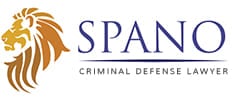Drunk driving is a persistent social issue that causes millions of dollars in property damage and claims thousands of lives every year. Despite there being well-known laws that prohibit driving while under the influence of intoxicating substances, people still do it every day, and police often don’t find them until they cause a crash or hurt someone.
Sobriety checkpoints have become a popular method for law enforcement officers to help curtail drunk driving on certain days of the year or in particular areas, such as near an entertainment district. Sobriety checkpoints are effectively police roadblocks that force anyone passing through to stop their vehicle and interact with police officers. Most interactions only take a few seconds and take place with the driver still in the vehicle.
However, if the officer has any reason to suspect impairment, they will likely have the driver pull over and get out of the vehicle to perform a field sobriety test, which may lead to chemical testing and a drunk driving arrest. Those who get swept up in a sobriety checkpoint enforcement effort may feel unfairly targeted and wonder if such broad enforcement tactics are legal or if they violate their rights as a citizen of the state of New York.
Sobriety checkpoints are legal under Federal and New York law
There is no federal law that prohibits the use of sobriety checkpoints or law enforcement roadblocks as a means of preventing drunk driving. However, there are certain states that do not allow law enforcement to use sobriety checkpoints to enforce impaired driving laws. New York is not one of those states.
Sobriety checkpoints are a popular tool in New York, allowing law enforcement officers to send a strong message about drunk driving to a large number of individuals in a short amount of time. However, because they sweep so many people up at the same time, the situation can feel like a violation of one’s civil rights.
Provided that law enforcement officers do not discriminate in the process of conducting the checkpoint but instead subject each driver and vehicle to the same level of scrutiny, the checkpoints don’t violate the rights of the people involved.
Just because the traffic stop was legal doesn’t mean you can’t defend yourself
Challenging the way in which law enforcement arrested you can be a strategy in some circumstances, but it likely won’t be a very effective strategy for those swept up in the sobriety checkpoint. There are other ways to challenge impaired-driving allegations in New York, ranging from challenging the evidence to the administration of the test that allegedly substantiates the allegations of impairment.
Just because you can’t challenge the traffic stop itself doesn’t mean there weren’t other issues that can help you push back against the pending charges that resulted.

